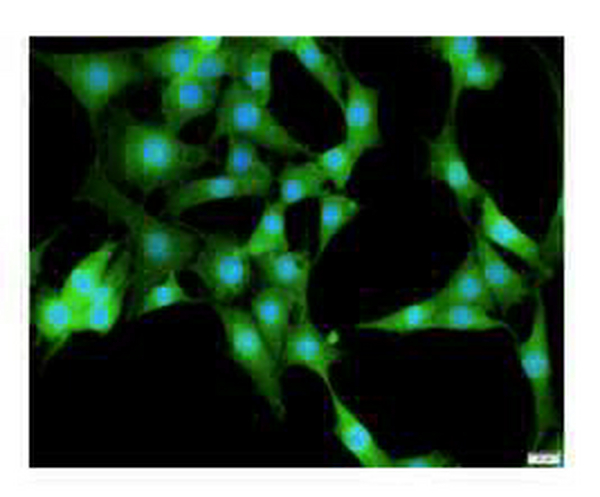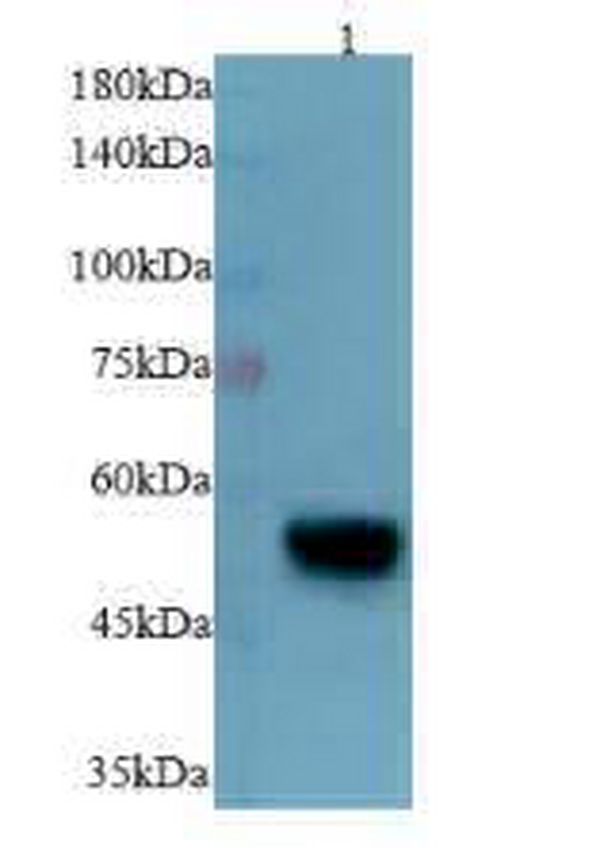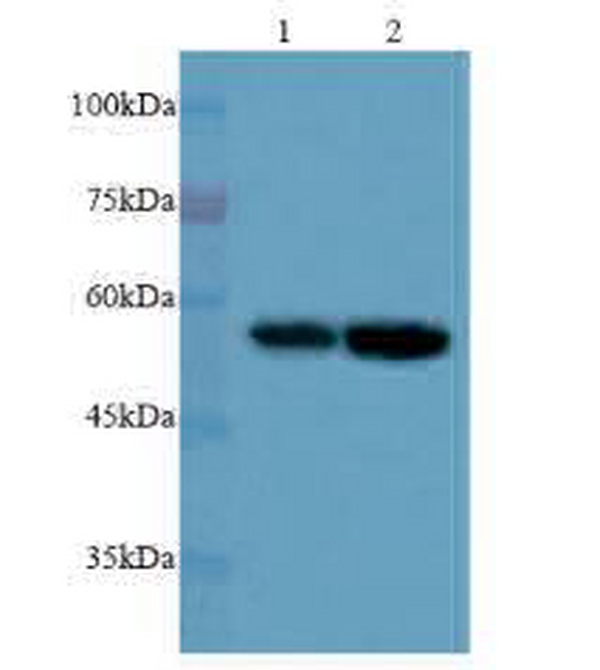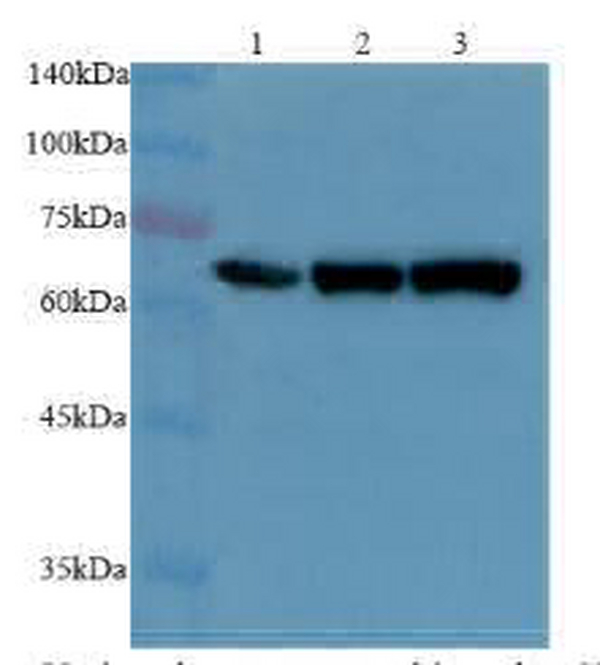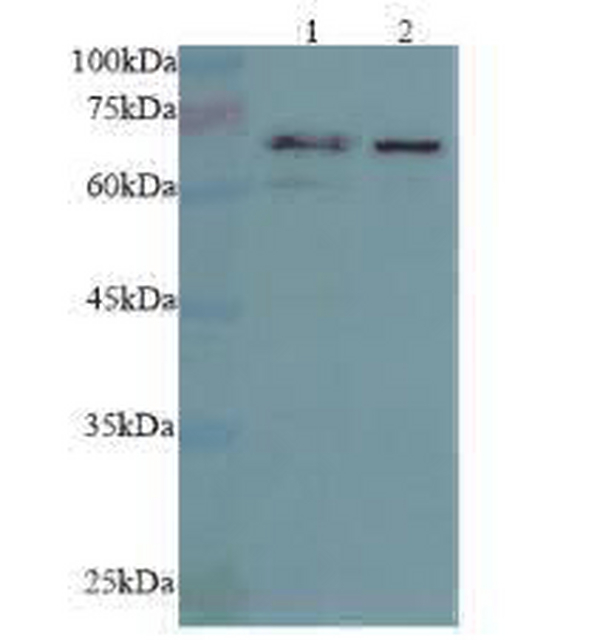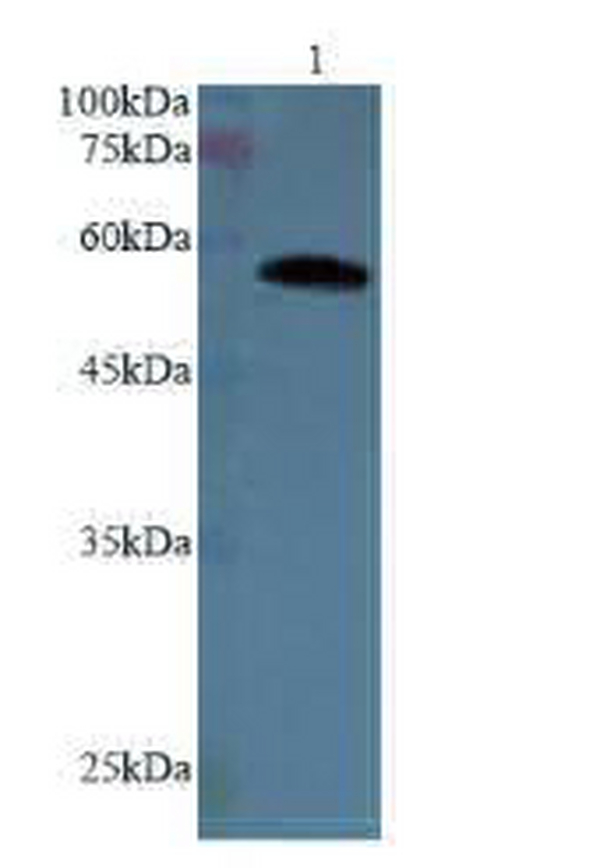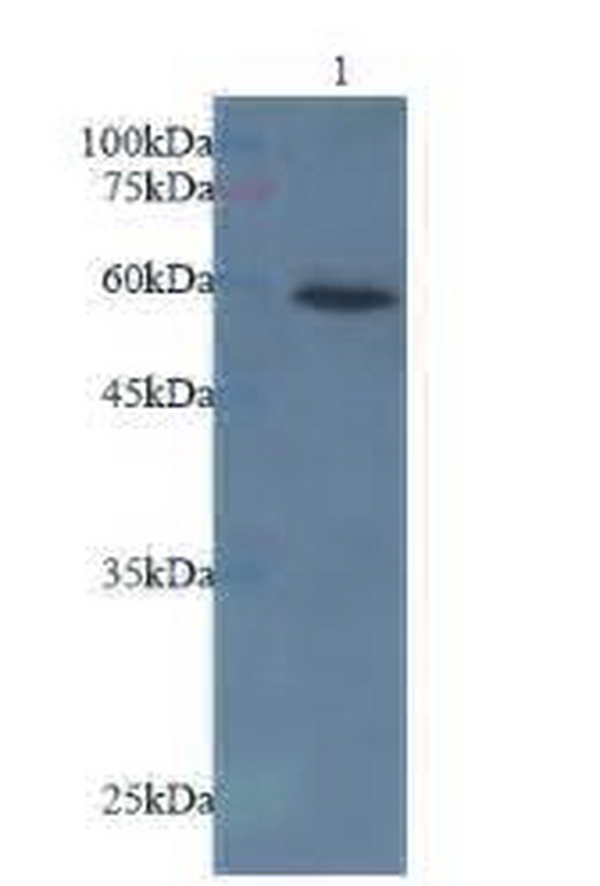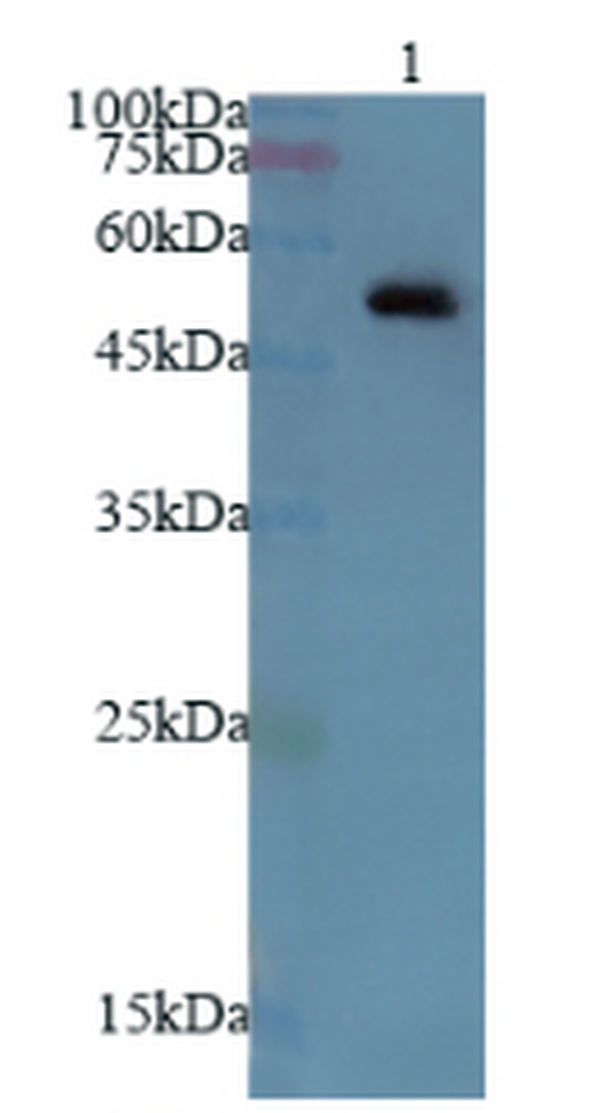QQ:3002763590


客服电话:021-61998208
Anti CCND2 polyclonal antibody
CCND2抗体
Anti CCND2 polyclonal antibodyCCND2 belongs to the highly conserved cyclin family, whose members are characterized by a dramatic periodicity in protein abundance through the cell cycle. Cyclins function as regulators of CDK kinases. CCND2 forms a complex with and functions as a regulatory subunit of CDK4 or CDK6, whose activity is required for cell cycle G1/S transition. CCND2 has been shown to interact with and be involved in the phosphorylation of tumor suppressor protein Rb. High level expression of CCND2 was observed in ovarian and testicular tumors.
Anti Desmin polyclonal antibody
Desmin抗体
Anti Desmin polyclonal antibodyDesmin is the main intermediate filament protein in skeletal and cardiac muscle cells and is essential for both the structural integrity and the survival of muscle cells. As an abundant muscle-specific protein, desmin has been widely used as a marker of muscle derived tumors. Anti-desmin is also valuable in the differential diagnosis of tumors of uncertain origin.
Anti Vimentin polyclonal antibody
Vimentin抗体
Anti Vimentin polyclonal antibodyVimentin, also named as VIM, belongs to the intermediate filament family. Vimentin is class-III intermediate filaments found in various non-epithelial cells, especially mesenchymal cells. Vimentin is important for stabilizing the architecture of the cytoplasm. Monocyte-derived macrophages secrete vimentin into the extracellular space in vitro. Secretion of vimentin was enhanced by the proinflammatory cytokine tumor necrosis factor-alpha (TNFA,191160) and inhibited by the antiinflammatory cytokine IL10 (124092), suggesting that vimentin is involved in the immune response. Vimentin has specialized functions that contribute to specific dynamic cellular processes. As a phosphoprotein, 55-60 kDa of vimentin proteins can be observed due to the different phosphorylation level. Isoforms of vimentin (49 kDa and 60 kDa) had also been reported. (PMID: 8640945, 22728585).
Anti PRKAA2 polyclonal antibody
PRKAA2抗体
Anti PRKAA2 polyclonal antibodyPRKAA2(protein kinase, AMP-activated, alpha 2 catalytic subunit), also named as AMPKA2, AMPK, PRKAA, AMPK2, belongs to the CAMK Ser/Thr protein kinase family and SNF1 subfamily. PRKAA2 is an αβγ heterotrimer that is activated by low cellular energy status, such as decreases in both the ATP/AMP ratio and the phosphocreatine content and it is a glycogen synthase kinase, phosphorylating Ser7 at the NH2 terminus, which decreases glycogen synthase activity (PMID:14532170). The protein can be ubiquitinated (PMID:21224036).
Anti AMPK alpha 1 polyclonal antibody
AMPK alpha 1 抗体
Anti AMPK alpha 1 polyclonal antibodyThe mammalian 5-prime-AMP-activated protein kinase (AMPK) appears to play a role in protecting cells from stresses that cause ATP depletion by switching off ATP-consuming biosynthetic pathways. PRKAA1 is also named as AMPK1, ACACA kinase, HMGCR kinase. It is a mammalian homologue of sucrose non-fermenting protein kinase (SNF-1), which belongs to a serine/threonine protein kinase family. It has 2 isoforms with molecular mass of 63-66 kDa produced by alternative splicing.
Anti AKT3 polyclonal antibody
AKT3 抗体
Anti AKT3 polyclonal antibodyAKT3, also named as PKBG, is one of 3 closely related serine/threonine-protein kinases (AKT1, AKT2 and AKT3) called the AKT kinase, and which regulate many processes including metabolism, proliferation, cell survival, growth and angiogenesis. AKT3 is a key modulator of several tumors like melanoma, glioma and ovarian cancer. Active AKT3 increases progressively during melanoma tumor progression with highest levels present in advanced-stage metastatic melanomas.
Anti AKT2 polyclonal antibody
AKT2抗体
Anti AKT2 polyclonal antibodyAKT2 is one of 3 closely related serine/threonine-protein kinases (AKT1, AKT2 and AKT3) called the AKT kinase, and which regulate many processes including metabolism, proliferation, cell survival, growth and angiogenesis and their activation has been observed in a wide variety of cancers. AKT2 is mainly involved in cancer cell survival, apoptosis inhibition, migration and invasion(PMID:21979951). Defects in AKT2 are a cause of susceptibility to breast cancer (BC). AKT2 promotes metastasis of tumor cells without affecting the latency of tumor development. And defects in AKT2 are a cause of non-insulin-dependent diabetes mellitus (NIDDM) and hypoinsulinemic hypoglycemia with hemihypertrophy (HIHGHH). The full length protein has four glycosylation sites.
Anti AKT1 polyclonal antibody
AKT1抗体
Anti AKT1 polyclonal antibody The serine-threonine protein kinase AKT1 is catalytically inactive in serum-starved primary and immortalized fibroblasts. AKT1 and the related AKT2 are activated by platelet-derived growth factor. The activation is rapid and specific, and it is abrogated by mutations in the pleckstrin homology domain of AKT1. It was shown that the activation occurs through phosphatidylinositol 3-kinase. In the developing nervous system AKT is a critical mediator of growth factor-induced neuronal survival. Survival factors can suppress apoptosis in a transcription-independent manner by activating the serine/threonine kinase AKT1, which then phosphorylates and inactivates components of the apoptotic machinery.
最新动态
-
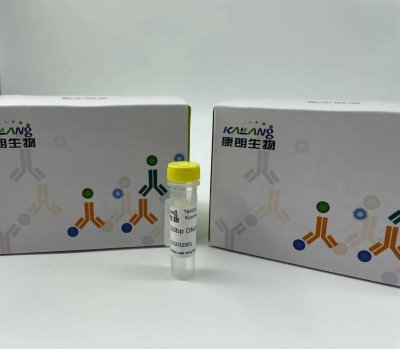
Anti-GNGT1 KL20092-001(50ul)
2021-10-11 -

Anti-GNGT1 antibody(50ul) KL20093-001
2021-10-11 -
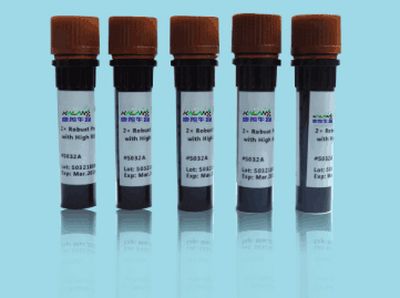
MUC5AC (PT2058) mouse Monoclonal Antibody
2021-01-06 -

mOrange mouse Monoclonal Antibody(Mix)
2021-01-05
热门标签
- Histone H3 rabbit Polyclonal Antibody Histone H3抗体
- EGFR rabbit Polyclonal Antibody EGFR抗体
- Cy3 Conjugated
- AbFluor™ 555 Conjugated
- AbFluor™ 680 Conjugated
- AbFluor™ 350 Conjugated
- AbFluor™ 647 Conjugated
- AbFluor™ 594 Conjugated
- AbFluor™ 405 Conjugated
- Cy5 Conjugated
- AbFluor™ 488 Conjugated
- Cyclophilin B抗体 Cyclophilin B Monoclonal Antibody(2B10)
- COX IV抗体 COX IV Monoclonal Antibody(6C8)
- PCNA抗体 PCNA Monoclonal Antibody(12D10)
- FAK rabbit Polyclonal Antibody FAK抗体
邮箱:3002763590@qq.com
电话:021-61998208

扫码关注微信公众号



